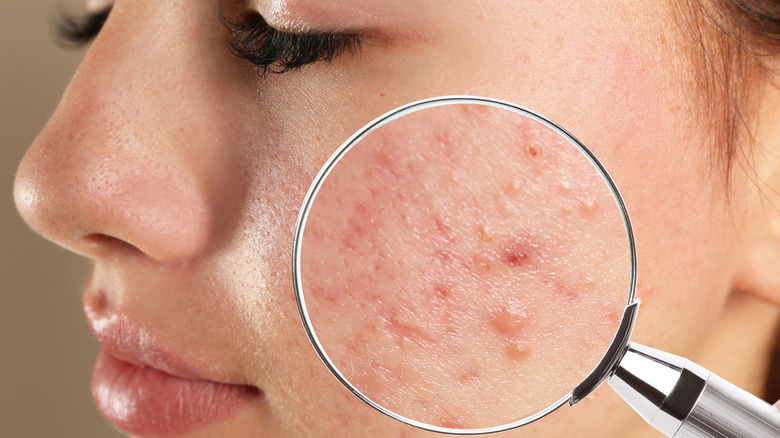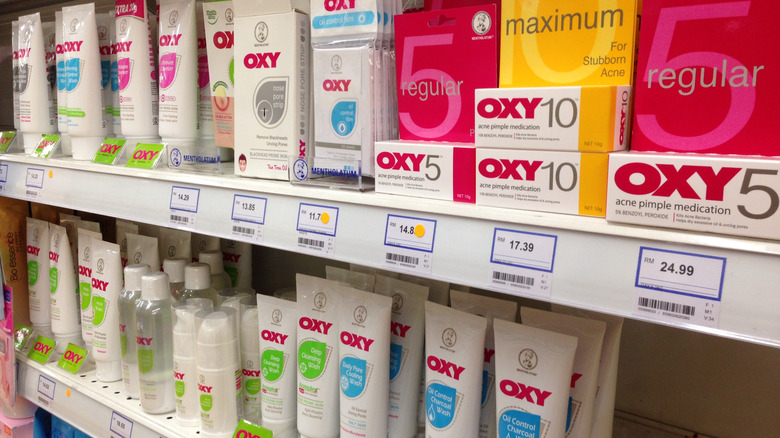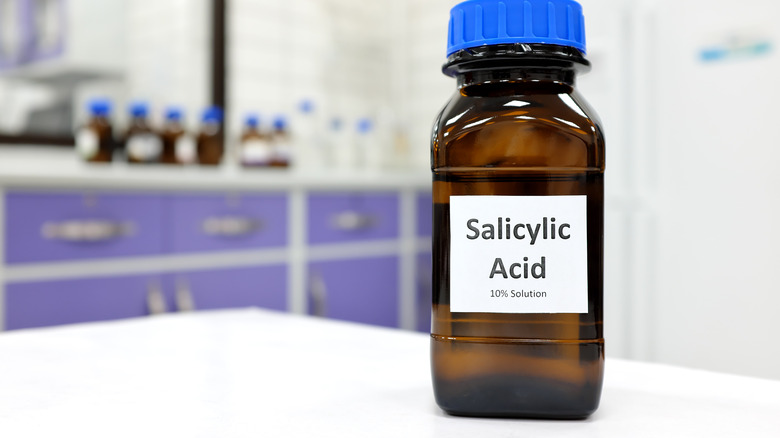Benzoyl Peroxide Vs. Salicylic Acid: Which Is Better For Acne?
No matter your age, if you're dealing with acne, we understand how badly you want to use the very most effective treatment. Not only can acne be physically uncomfortable, but stubborn blemishes can hit self esteem pretty hard. If you are fighting acne right now, please take heart that you are far from alone; according to the American Academy of Dermatology, acne is the most common skin condition in the country with a whopping 85 percent of people between the ages of 12 and 24 experiencing at least mild cases of the condition. But if you are outside of this age bracket, you are still far from the outlier you might feel like you are. In fact, 15 percent of adult women in the United States also deals with acne.
So what are the most common treatments that your doctor or pharmacist might recommend to you, and how do you know which one will be most effective for the type of acne you're dealing with?
Benzoyl Peroxide
You've probably seen benzoyl peroxide listed as an active ingredient in many acne treatments, from creams to cleansing pads. But what is it, and what does it actually do? Benzoyl peroxide is an effective antiseptic, meaning it works to kill germs on the surface of your skin. The reason this might be necessary when treating acne is that pimples form when a pore gets clogged with oil, dirt, and dead skin, and then bacteria grows in this environment, creating inflammation and, essentially, a small infection (via Mayo Clinic). Benzoyl peroxide is effective at killing the bacteria that can cause this inflammation (via NHS.UK). It is worth noting, however, that it can take up to four weeks of regular use to start seeing results, as the peroxide prevents new infections from happening.
While this ingredient comes in several over-the-counter treatments, it is also available in stronger concentrations by prescriptions. For the most part, it is considered safe with few side effects, though drying of skin is possible, and it is essential that you wear a sunscreen to protect yourself from increased sensitivity to the sun (via Healthline). Benzoyl peroxide is considered the most effective treatment for standard pimples that are red pustules, raised above the skin. However, different types of acne respond better to different treatments.
Salicylic Acid
Salicylic acid is part of a drug class known as salicylates (via WebMD). It is a gentle exfoliant which, when used on the skin, helps to shed dead skin cells and also works to reduce inflammation. It also helps to dry up excess oil on your face, preventing it from clogging pores. While benzoyl peroxide works better for standard pustules, salicylic acid is more effective at clearing up and preventing white heads and blackheads (via Healthline). For this reason, it can also sometimes be used to help prevent cystic acne, as those blemishes form deep beneath the surface of the skin, in the pores.
With regard to side effects, because salicylic acid helps to reduce oil, it can cause dryness is overused or if moisturizers are not used in conjunction. It is generally considered a more mild treatment than benzoyl peroxide, but a doctor might even suggest you use both, one at night and one during the day. However, it is important that you begin any treatment very slowly. Going from zero to sixty can greatly increase your chances of unwanted side effects like dryness or irritation.
If you aren't sure which type of acne you're dealing with, it's a good idea to consult with a dermatologist so that they can make sure you use the treatment best suited to your particular skin!


